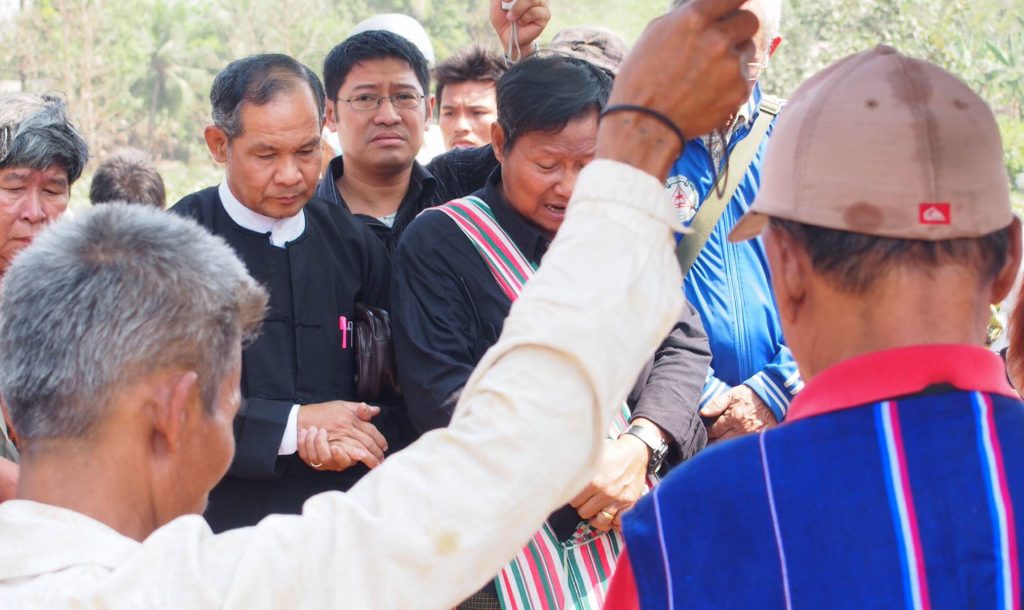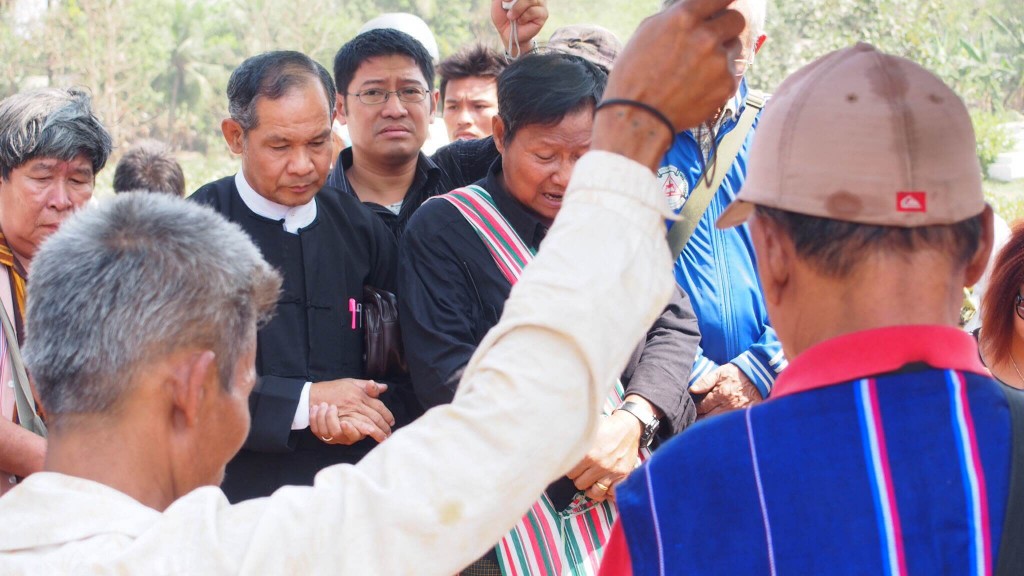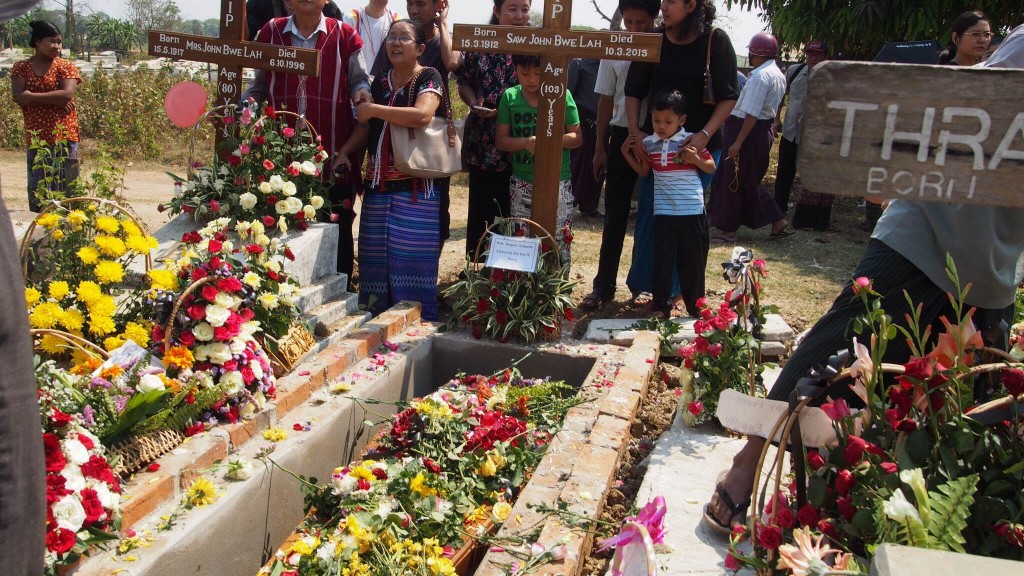There were only tears of joy at the funeral of Saw John Bwe Lah, a white-haired 103 year-old Karen man of Taungoo in central Myanmar who passed away on March 10th 2015. A former national pole-vault champion, successful timber merchant, father of six and prominent member of Myanmar’s Baptist Karen community, Saw John’s wake and funeral celebrated the “extraordinary struggle, discipline and service” he exhibited throughout his life. It also provided a vivid glimpse into the diverse connections and networks of Christian Karen in central Myanmar.
After a series of welcome happenstances, I was invited to attend Saw John Bwe Lah’s wake and subsequent funeral, both of which were a beautiful celebration of his life and journey from his early life in a poor area of mountainous northern Kayin state to later role as a leader of Myanmar’s Baptist Karen community.
The wake was held on a balmy evening in an old teak house located in a predominantly Karen quarter of Taungoo. It was an overwhelmingly jolly affair, with family and friends from near and far swapping tales of Saw John’s early achievements over bowls of thick, delicious Karen bean and pork rib soup (tarkapaw) and sweet lychee soda. Two neatly framed letters of reference circulated at the wake for guests, including myself, to peruse. The first letter, dated March 1935 and written by the head pastor of the A.B.M Karen High School in Taungoo, detailed Saw John’s athletic successes – both as a footballer and champion pole-vaulter – and recognized him as “an all-round pupil” and prefect.
The later letter, from March 1941, provides a particularly fascinating insight for those interested in late colonial-era university politics in Burma. The short five-line reference, signed by the principal of Judson College in Rangoon, details Saw John’s studies in mathematics, geography and economics and emphasizes his ‘pleasant manners’, ‘friendly demeanor’, ‘strong character’ and ‘excellent conduct’. A small historical footnote: the contemporary entity we know as University of Yangon was the amalgamation of two colleges, the secular University College and Judson College, a Baptist entity. Though their amalgamation into Rangoon University formally occurred in 1920, from the letterhead of the reference and lack of any mention of the university, it seems Judson College continued to retain some institutional autonomy until at least the early 1940s.
Saw John’s funeral was held at 8AM the morning after the wake in airy Paku Baptist Church in Taungoo. So as not to disrupt the second day of matriculation exams being conducted at a nearby high school, the service – which I was told could’ve run for over two and a half hours – was abbreviated into an hour and twenty minutes. Conducted almost entirely in Burmese, the celebration included pitch-perfect Gospel harmonies sung by four separate choirs, numerous eulogies of Saw John’s life, successful timber trading business and strong Christian faith as well as a heartfelt solo by Karen musician Marvellous. More than a dozen Christian clerics from throughout Myanmar, including a prominent Anglican Bishop, also attended and sent blessings.
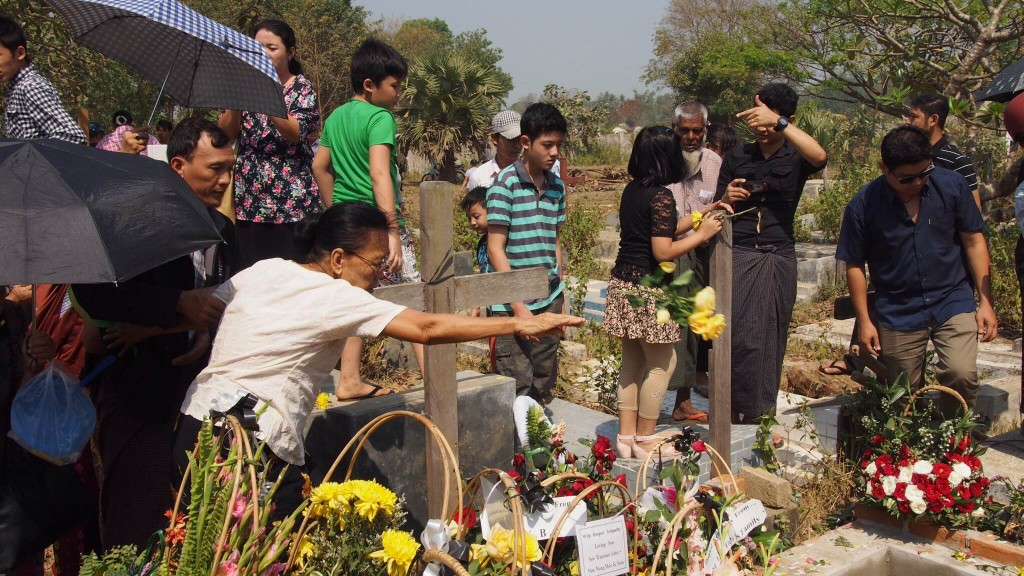
Three elements of the wake and funeral hinted at the highly networked nature of Taungoo’s Karen Christian community to places and people near and far. The first was the large and boisterous component of Saw John’s family from Baw Ga Li, just over the border in Kayin State, who had travelled down from the mountains on motorbikes to participate in the festivities. Taungoo’s Karen community makes up around 30 percent of this ethnically mixed town in northern Bago region, but their connections stretch across most of Kayin state to the Thai border and down into the Irrawaddy Delta. Many Karen families in the area – including Saw John’s – trace their history back to Than Daun Gyi and Baw Ga Li around 50 kilometres into the hilly areas of Myanmar’s Kayin State from which most migrated during the colonial period for educational and work opportunities. These areas are today regions of strong support for the Karen National Union, a predominantly Christian ethnic nationalist group that are in on-going cease-fire negotiations with the Myanmar government.
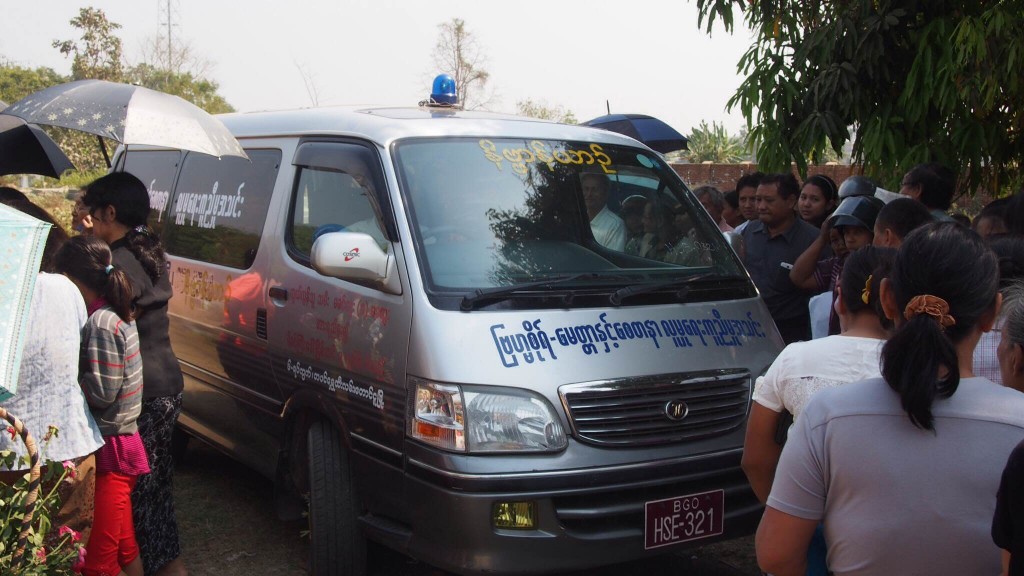
The second sign of the complex inter-religious connection of this community was the hearse, which was donated and driven by the Taungoo Metta Social Charity. A largely Buddhist organization that provides complementary funerals to members of the local community, Metta is one of numerous similar welfare groups in the town that was developed to provide welfare for everyday people during the depths of the authoritarian period. Given that there is also a Christian funeral charity in Taungoo, the transportation of Saw John’s casket to the local cemetery by the Buddhist Metta Social Charity hints at the strength of inter-religious ties and relations in this majority Buddhist town.
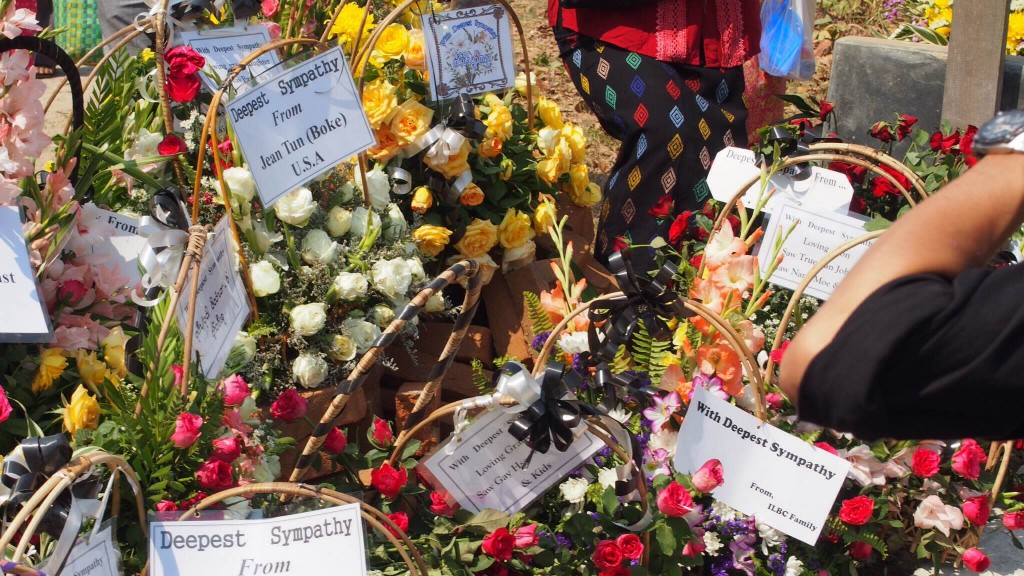
The most visually striking indicator of the rich networks of Taungoo’s Karen community for me, however, were the hundreds of baskets of flowers from throughout Myanmar and across the globe that cloaked the sanctuary – including from Kayin State, Yangon, Singapore, the USA, Canada and Australia. All of these bouquets, with neatly laminated condolence cards attached for all to see, were transported to the cemetery in the back of Toyota Hilux’s. Thanks to Skype, a patchy 3G connection and a willing relative, a few lucky members of the diaspora community who could not attend the funeral were able to witness the striking sight of the casket being lowered to it’s final resting place – as friends and family covered it with petals from flowers sent from around the globe.
I was not lucky enough to have met Saw John Bwe Lah, a man who lived through over a century of Myanmar’s turbulent history through the decline and collapse of British rule to the current nascent political transition. Yet his wake and funeral helped to provide a small snapshot into the history and diverse connections of an ethnic minority community of which he was a respected leader for many decades.
Gerard McCarthy is a doctoral candidate at the Australian National University’s Coral Bell School of Asia Pacific Affairs, currently conducting fieldwork in central Myanmar.
 Facebook
Facebook  Twitter
Twitter  Soundcloud
Soundcloud  Youtube
Youtube  Rss
Rss 